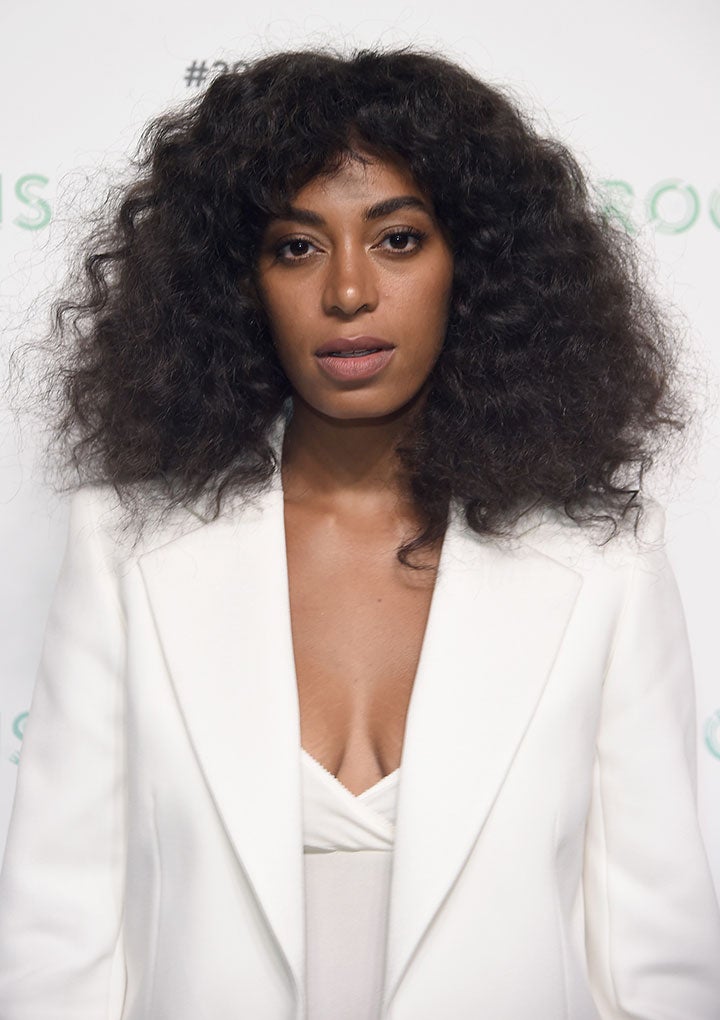
Last week, Singer Solange – excited to introduce her son to new experiences – decided to dedicate a Friday night to a family-fun outing at a Kraftwerk concert. But the experience soon turned violent as four older white women reportedly threw trash at her, including a half-eaten lime, while demanding she sit down at the electronic and dance music concert.
Solange took to Twitter to explain the ordeal, touching on the very real and tangible violence people of color face when in predominantly white spaces.
“But in this moment, I’m just going to share my experience…So that maybe someone will understand, why many of us don’t feel safe,” she tweeted.
“In many white spaces, we don’t ‘bring the drama.’”
What the singer described was the historical experience of being Black in this country, despite our contributions to it, and the widely held belief that, somehow, we do not belong here. It’s the belief that Black people don’t belong in certain neighborhoods, in certain communities. That Black people can’t be in certain stores or fly first class.
That Black people can’t be joyful and carefree. That they have the audacity to dance at concert.
And in an essay penned Sunday for Saint Heron, Solange lays out her experiences as a Black, joyful, carefree woman existing in a world that is rooted in hostility towards Black folk.
Describing her concert-going experience at length, Solange wrote that the overall tone of that experience and other’s she’s had is “I do not feel you belong here.”
WANT MORE FROM ESSENCE? Subscribe to our daily newsletter for the latest in hair, beauty, style and celebrity news.
“You’re full of passion and shock, so you share this story on Twitter, hands shaking, because you actually want these women to face accountability in some kind of way,” she wrote. “You know that you cannot speak to them with out it escalating because they have no respect for you or your son, and this will only end badly for you and feel it’s not worth getting the police involved. So, you are hoping they will hear you this way.”
“You know when you share this that a part of the population is going to side with the women who threw trash at you. You know that they will come up with every excuse to remove that huge part of the incident and make this about you standing up at a concert ‘blocking someone’s view.’ You know that a lot of the media will not even mention the trash being thrown at you with your 11-year-old son being present. You constantly see the media having a hard time contextualizing black women and men as victims every day, even when it means losing their own lives.”
The experience of being Black in “white spaces,” no less traumatizing than the ones she describes in this piece (including a concert venue attendant accusing her son of smoking an electronic cigarette and being blocked out of her own neighborhood by a police officer following a Mardi Gras parade), do not silence the singer. Instead, she wrote, she decided to share because she knows that Black women, men and children have also felt unsafe when they do, in fact, belong.
“You do not care in that moment because you understand that many of your followers will understand and have been through this same type of thing many a times, and if it means them hearing you say it’s ok, you will rise again through out these moments, then it means something bigger to you.”
In that moment of disrespect and despicable violence, the singer’s best weapon was to simply exist.
Dancing, carefree and Black.
“After you think it all over, you know that the biggest payback you could have ever had (after, go figure, they then decided they wanted to stand up and dance to songs they liked) was dancing right in front of them with my hair swinging from left to right, my beautiful black son and husband, and our dear friend Rasheed jamming the hell out with the rhythm our ancestors blessed upon us saying.”
You can read the full essay, here.